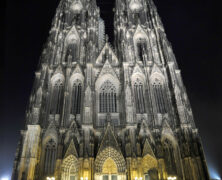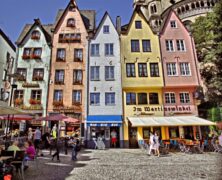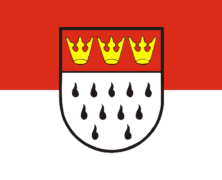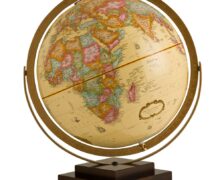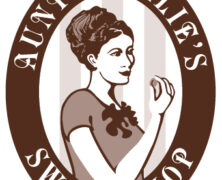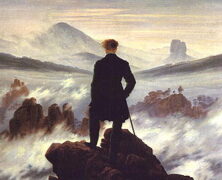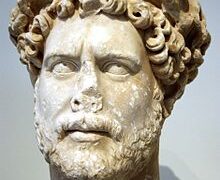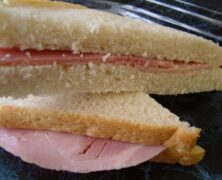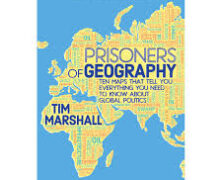DAY FIVE There are a small number of things in the world that possess the power to really make you realise just how minuscule a place you occupy in the big old universe. Köln Cathedral is one of these things. It towers above the rest of the city, its spires always visible in some distant direction wherever you are, unless they are shrouded in fog like a heavenly gate. Standing before it in Köln’s main plaza, you cannot even see the top, though you are still as awed as ever. The doors alone are immense, deep-set in spectacular mullions like the eyes of a monstrous hermit crab. Poised beside them like an unofficial ticket-dispensing machine is a priest with a touch of the circus magician about him, dressed in a sweeping red robe, and probably carrying a small wooden box to collect “voluntary” donations for the cathedral. But even if he does sidle into your path and smile a few coins out of your purse, you will soon see that he does so with good reason; for the interior of the Dom is a beautiful, beautiful place. The nave is high and arched, and at ground level you walk between blocks and blocks of pews, separated only by tall ribbed pillars, candlesticks and the occasional lost foreigner. Tour guides squeeze between the mobs of visitors while frantically wafting the flimsiest of signs above their heads, hoping that the rest of their group are bobbing along behind them. The looming stained-glass windows of the cathedral seem to cycle through more artistic periods in a few square metres than a full art gallery does in three floors; there is everything from the flat and simple archaic designs to the more modern, deep, bright works to one...
WILLKOMMEN IN KÖLN: A GLOBETROTTER’S DIARY by Cian Morey...
posted by Cloud
DAY FOUR So there’s this thing on the continent called “history”. The Americanised west should try it sometime. Köln, like most long-standing European cities, has an Old Quarter, and furthermore, an Old Quarter that is respected and protected. I mentioned before how the city centre has been overrun and ruined by multinational corporations and western fast-food empires, in some strange spiritual sequel to the rampages of Visigoths and Vandals in the 5th century. Until now I believed that that American Invasion was a big messy thing that came at a heavy cost to the region’s history, but, as I’ve recently discovered, it just means that all the history you could ever need has been neatly parcelled up and tucked into one small district in typical orderly German fashion. Here in Köln’s Old Quarter they’ve got it right. Here in Köln’s Old Quarter there is no great push towards industrialisation, no craze for erecting useless empty skyscrapers, no gnawing addiction to historical bulldozing. Here in Köln’s Old Quarter they understand the value of their past and they embrace it with open arms instead of wrecking balls, and their admirable care for their common cultural history is nowhere more obvious than in the very heart of the riverside Altstadt. South-east of the Dom, well out of range of the quarantined zones that contain such festering diseases as McDonald’s and Accessorize, lies this charming sprawling district of cobbled sidestreets and crooked buildings, packed with all manner of quirky shops, artistic ideas, excellent eateries and pompous pigeons. A soft scent of fresh baking bubbles through the alleyways, shafts of light peep around corners and through the most interesting of nooks, and there is an overall sense of tranquility and secretive magic that I had always believed was unique...
WILLKOMMEN IN KÖLN: A GLOBETROTTER’S DIARY by Cian Morey...
posted by Cloud
DAY THREE While I have previously mentioned that Köln is massive, I must clarify that for all its massiveness it is also dense, sort of like a big bar of gold, or Donald Trump’s head. Quite a lot of tourist attractions have been neatly packed into the one convenient Fußgängerzone – such as the cathedral, the shopping quarters and an assortment of museums – and this is rather fortunate, because public transport services are absolutely abysmal. For the last two days I braved the city on foot, which was tolerable at the time but left me exhausted and had incapacitated my right leg by this morning. I felt as though my ankle had been glued to the ground while the rest of me was bungee-jumping off a cliff. I woke early this morning with the deep determination to limp posthaste to the Hauptbahnhof and seek an elusive map of public transport zones. The precise reason for my waking early was a failing in my apartment’s air conditioning unit which necessitated repairs by a cohort of workmen who looked distinctly like a geriatric edition of the Super Mario Bros. The air conditioning flaw itself was barely noticeable, but the true hardship was that the repairs simply had to be performed at 8 o’clock in the morning, requiring me to be out of bed at 7 and out the door within the hour. While the average German day would start at about 6:30 anyway, this sort of timeframe is nightmarish to a holidaying student in summertime, who would rather cling to his bed like a sloth to a tree. Nonetheless I did what I had to do, and, as I later discovered, Mario did indeed repair the air conditioning to a high standard. To return to...
WILLKOMMEN IN KÖLN: A GLOBETROTTER’S DIARY by Cian Morey...
posted by Cloud
DAY TWO The morning of the second day of any holiday abroad is a tiny golden window in which you firmly believe you are a god. Having made it through the various circles of the hellish first day and come out the other side intact, you are convinced you can do anything. You are utterly familiar with your surroundings. You are a compass on legs when it comes to the navigation of sidestreets. You have become fluent in the language overnight, you are suddenly one of the place’s leading culinary experts, and you are ready to give the best guided tour that any confused newcomer has ever had the misfortune of experiencing. You are invincible. This window of invincibility lasts for roughly 45 seconds once you step out of range of the hotel. My plan today was a very simple one – explore Köln’s Ludwig Museum, find a bookshop that I’d seen the previous day, and hunt down a satisfying dinner somewhere in between. Ultimately I succeeded in every aspect, but not without a great deal of trouble. All of which made the day much more interesting than I had anticipated. The first issue was the weather, and its headwrecking changeability. Backtracking on its promises (meteorologically-speaking) with more fiendish enthusiasm than the Labour Party, it was sunny, raining, dull and sunny again within the space of about 20 minutes. I lost a good deal of time from the start of my excursion frantically switching outfits like a bad actor in a one-man play. Once I settled on an eccentric fashion of light shirt plus substantial rainjacket, I chugged towards the cathedral, the centrepoint at which my awareness of the whole city is anchored. On the way I was questioned by another tourist in search...
WILLKOMMEN IN KÖLN: A GLOBETROTTER’S DIARY by Cian Morey...
posted by Cloud
DAY ONE Köln. As I write this, I sit by a window in a slightly cramped room on the highest floor of an inner-city apartment block, surrounded by a great many other inner-city apartment blocks, a baffling prevalence of the English language, and an overwhelming lack of lederhosen. Yes, this is Germany. Travel writing has never been a strong point of mine and I have written fewer diary entries in my life than Neanderthals have written on the walls of caves, but considering that I’m staying here for the next week I’ve decided to keep track of my experiences. Until now I have rambled from France to Finland and from Brussels to Barcelona, but I have not set a single foot in Germany. Thus I am blessed, or perhaps cursed, with a true outsider’s perspective, where everything here is new to me and I’m as impartial as I could hope to be. (I doubt that will last for long, but we’ll see what happens.) With these articles you can enjoy the enviable experience of witnessing one of the world’s most influential countries through the eyes of one of the world’s least influential people, a bumbling Irish student with absolutely no idea of what’s going on around him. Viel Spaß! The first thing that the average turbulent tourist will notice upon arrival in Köln (for the uninitiated, “Köln” is the official German name of what we English-speaking perfume connoisseurs would know as “Cologne”), is that it is big. Very big. In fact, all of Germany is massive, which you might think goes without saying, but honestly its massiveness is unmissable once you’re in it and simply has to be mentioned. It isn’t just the sheer landmass that’s enormous, but literally everything, from the heights of...
A GLOBETROTTER’S DIARY: A PREAMBLE by Cian Morey...
posted by Cloud
Dear readers, whoever and wherever you may be, It is one of the eternal curiosities about the Irish people that they always seem to be trying to get as far away as possible from their homeland. I like to think that our population here in the Emerald Isle has been perhaps genetically instilled with some great fascination, some powerful drive to travel the world and broaden their horizons in foreign cultures, and maybe even spread their own meagre wisdom. In the words of one of the twentieth century’s foremost philosophers, explorers and leading fictional characters, James T. Kirk, it is and has always been the destiny of the Irish to “seek out new life and new civilisations, to boldy go where no man has gone before”. There are Irish pubs in every major city, there is Irish literature on every good bookshelf, and there is an Irish twig of dubious authenticity on every good American President’s family tree. We have set forth in force in these last few centuries and we have just about conquered the world. Or maybe it’s just that we all really hate the rain here, which is as good a motive as any for getting the hell out. For whatever reason, we tend to find ourselves sprinkled across the globe as though God accidentally spilled us like coffee on his blueprints when he was putting together the Earth. Another talent of the Irish, apart from running away from Ireland, is writing. It is only natural then, in between booking the next sunshine holiday and experimenting valiantly with the local alcohol of whatever region we’ve thrown ourselves into, to attempt to combine our two natural gifts and produce some actual, legible “travel writing”. It may not be the most popular corner...
Watch This Now! “Live From Daryl’s House”...
posted by Cloud
It probably happened by accident. I couldn’t have known quite how good things could get. My memory of it is this: I happened upon a YouTube tutorial on how to set up an electric guitar given by Joe Walsh. “Setting up” a guitar means servicing it so that it’s ready to play and will perform reliably. I knew this guy. Where’ve I’ve seen him before? He’s some ageing rocker who speaks with a slight slur. Wasn’t there something about a career of drug abuse and near-death experiences? I think curiosity led me to his performances on a show hosted by Daryl Hall of whom I was only peripherally aware theretofore. He was half of one of the most successful songwriting duos of all time, Hall and Oates, who’ve had a plethora of their own hits and have written for other people too. They did “Out of Touch,” “Maneater,” “Private Eyes” and “Sara Smile.” There is a lot more. It turns out Joe Walsh was in TheEagles for about a decade until the band spit up. He’d had success before that with James Gang and some solo stuff. When The Eagles broke up he spent about fifteen years drinking heavily (vodka) and taking drugs (cocaine). His other vice was Camel Light cigarettes. And here he was in a room with Daryl Hall on YouTube playing songs from his new album like “Wrecking Ball” (a welcome rival to Miley Cyrus) and old ones like “Funk #49” (a must listen for anyone but especially for fans of guitar). It wasn’t all about Joe. Daryl Hall invites people to come and play, some legendary artists and lesser-known ones. They all get in a room and they play. It’s a simple formula but utterly compelling. There’s the talent for...
And Willy Wonka Continues to Stare...
posted by Cloud
There are efforts evident behind the glass On red, red temperamental Material, fabric, dressing – ‘Bee Mine,’ says the Teddy; And Willy Wonka continues to stare: A study in poise, self-assured Enough to expect That one day, maybe soon His heir will materialise Like his wondrous creations And build an Empire all his own....
Monologue on a mountain...
posted by Cloud
When we got out it was cold and dreary and I began to regret my choice of undergarments like Prince Harry in Blackadder had as he prepared to watch his brother Edmund burn to death. Soon enough I got into it. As long as I was moving I hardly noticed the wind. The mountain seemed insurmountable though, covered in mist and wet-looking. Luckily though, as we reached the top, the clouds parted just about us and there appeared a massive swathe of blue that remained for quite a while. The lakes were inspiring; I thought of the Romantic poets as I looked down into first the Devil’s Punchbowl and then Horse’s Valley (?). Words like “vertiginous” and “craggy,” “savage” and “maw” suggested themselves, calling like familiar and welcome visitors from my past. Now and then my legs threatened to give out and these moments were opportunities to daydream about being a soldier in Afghanistan or Guadal Canal, carrying fifty kilos of gear on my back and thinking about encountering the enemy on the ridge ahead or beyond it. The mind wanders so insistently on the mountain, most especially when I find myself desirous of silence and trying to filter out some conversation between three or four young fellas in which I’ve no wish to engage. Mostly though, it was a case of admiring the beauty up there: the clouds like volcanic smoke rising from little valleys; the way stones were, by myriad forces, strewn in a heap here or flattened out unevenly there; moss-covered remains of fence-posts and green, slippery rocks; the customary cairns, some without any clear purpose: “it just becomes an activity,” Tim complained, as I added to one of them; an amorphous and massive medallion of light on the fieldscape in...
Polyarchy, foxes, wolves and other stuff....
posted by Cloud
Noam Chomsky In Doctrines and Visions, Chomsky alludes to notion that there are, at any one time, only a minority of men capable of ruling since most men are beasts. Since the Revolution in England in the seventeenth century, democracy hasn’t been about the multitude of “beasts in men’s shapes” but rather the concentration of power in the hands of the few. These “men of best quality” serve to ensure that “a system of elite decision-making and public ratification” is enshrined: “polyarchy” is the term. How is the multitude to be put in its place. One way is to manufacture consent, that “public ratification.” People must believe in and willingly adhere to what their leaders are telling them. Walter Lippman wrote that a “specialized class” of leaders must be empowered so as to direct the public who, without these leaders wouldn’t manage their own affairs. THe public, according to Lippman are ignorant and meddlesome; leaders of men are trained “in the law schools and law offices and in business” so as to “live free of the trampling and the roar of a bewildered herd…ignorant and meddlesome outsiders.” Niccolo Machiavelli’s The Prince This famous and supposedly precocious political thinker Machiavelli, whose name is nowadays an adjective meaning anything from “devious” to “self-serving,” wrote The Prince as a CV for a job in the administration of Lorenzo De’ Medici of Florence. In it, he says more or less that he has an understanding that men generally do not have and that, while he has access to knowledge and insight that may be unsavoury, it is no less essential for it. Machiavelli advises Lorenzo that “there are two ways of fighting: by law or by force.” The first is preferable but sometimes ineffective. Leaders must derogate to...
Manchester United?
posted by Cloud
There’s a lot today about the Manchester bomb. The Irish Times carries front-page photos of two pretty young girls, Saffie Rose Roussos (8) and Georgina Callander (18) who were both murdered by the suspected bomber, twenty-two year-old Salman Ramadan Abedi, “a Manchester-born son of Libyan refugees.” Simon Carswell writes of how Nadia Abdulmalek and Deborah Henley “embraced and cried among a crowd of thousands at Manchester Town Hall at a vigil” even though culturally they are very different. Donald Trump called the bomber a “loser.” Fintan O’Toole writes that “mass murder is easy and the more outrageous it is the easier it gets. Flesh is soft and easily shredded. Lives are fragile and easily shattered. Decency, humanity, compassion are flimsy and precarious. The barriers that separate earth from hell and civilization from barbarism are porous and full of holes…” “Porous and full of holes”? The editorial says that “even by the standards of the decade…[Manchester] was an atrocity of singular, unspeakable cruelty.” (Goggy used to pronounce it “cruelity” with an added syllable.) Britain, it goes on, “must again confront two grim realities: that the threat of indiscriminate atrocities has become a regular feature of daily life in the world’s major cities, and that free societies cannot entirely eliminate that threat without undermining the very freedoms that define them.” I’m reminded of something Solzenitsyn wrote about America, something about why there was so much (or any) joy and triumph. I’m thinking of The Proud Tower too and how more than a century ago the people we now called Islamic terrorists were known as Anarchists and hoped to changed society or undo it altogether with a single deed, one that would initiate a further series of earth-shattering events and a total realignment of forces and structures....
The face of evil? The Rosenberg Executions...
posted by Cloud
I’m reading the death sentence handed down to Julius and Ethel Rosenberg by Judge Irving Kaufman in April 1951. The Rosenbergs were accused of spying, of passing nuclear secrets to the Russians. The judge argues that, by his own admission, Julius Rosenberg got a better and fairer trial in America than he could have hoped for in Russia. This galls Kaufman who says that “It is to America’s credit that it took the pains and exerted the effort which it did in the trial.” Still, the defendants devoted themselves to “the Russian ideology of denial of God, denial of the sanctity of the individual, and aggression against free men everywhere.” No wonder then that Judge Kaufman considers the crime for which the Rosenbergs are about to be sentenced to death “worse than murder.” After all, as he argues, “Plain deliberate contemplated murder is dwarfed in magnitude by comparison with the crime you have committed.” The charges expand as he speaks, getting so large as to blame the Rosenbergs for the death toll (at that stage 50,000) in the Korean War: “I believe your conduct in putting into the hands of the Russians the A-bomb years before our best scientists predicted Russia would perfect the bomb has already caused, in my opinion, the Communist aggression in Korea.” And it gets worse because “who knows but that millions more of innocent people may pay the price of your treason.” Julius and Ethel Rosenberg went to the electric chair in June 1953. Before they died they wrote letters to each other, to their children. In one letter Julius wrote to his sons Michael and Robert. To Michael he wrote: “I want to tell you that I am confident in the end we will be set free...
My Feelings About Cheese...
posted by Cloud
My feelings about cheese aren’t straight-forward and why should they be? Who amongst the general populace, least of all vegans perhaps, could feel utterly secure in eating what is the animal equivalent of breast milk? And yet, despite the fact that cheese is exactly this, it is a most popular food stuff, eaten every day by myriad people and in a dizzying array of forms. One can’t help referencing Borat here where he asks the unsuspecting store attendant “What is this?” The answer of course is “Cheese.” But he keeps on asking anyway despite the iron predictability of the answer. The reason he is able to ask repeatedly without seeming to be too unreasonable is because of how many types of cheese there are. The display must be thirty feet long and there is row upon row of cheese products with different packaging, different applications, different demographics. One can easily imagine that there is the block of cheese for the man or maybe the no-nonsense single adult who likes to wield and knife and who enjoys eating chunks of cheese, to choose his own width of slice you might say. You know there’s going to be the sliced cheese with the robust and rigid and wholly wasteful plastic packaging for the mother of two who hasn’t time to slice the cheese for her little darlings and who can never judge the appropriate width of slice anyway. The sliced cheese is also directed I suspect squarely at the lover of the toasted sandwich. Then there’s the grated cheese, I mean the stuff that’s grated for you. This is for the pizza makers, the hipsters. Very few eat the grated stuff in fistfuls while you can well imagine plenty of people enjoying a slice – whether...
THE DEPLORABLE DAMNATION OF THE MODERN LUNCHEONING MAN by Cian Morey...
posted by Cloud
One of my few solemn and unwavering beliefs is that mankind has never been graced with a greater stroke of genius than The Ham Sandwich. In 200,000 years of – for want of a better word – life, the human race has accomplished nothing approaching the culinary creativity, the artistic acumen or the sheer splendid simplicity of that most cherished foodstuff. It is (in short) the ideal intersection of all the efficiency, economy and ease that modern life necessitates, and the rich, rewarding rapture that fine dining bestows, sprinkled throughout with just a little dash of getting the job done and filling you up damn well for the rest of the good old diem until you get your literal teeth into the next one. Fast, functional and fairly fully flavouricious, It has never once let us down. Woe betide, ladies and gentlemen, were we ever to find ourselves bereft of the good work of The Ham Sandwich, woe betide. Unfortunately, we find ourselves increasingly bereft of the good work of The Ham Sandwich. It must be realised here that the crisis in question has been steadily simmering toward an eruption for years. This is not a sudden, unstoppable catastrophe; this is rather the minimum point of a gradual plunge in global standards that society not only failed to prevent but actively encouraged. Even I allowed this plague to fester under my not-inconsiderable nose for too long without taking notice or action. We are all to blame for the downfall of The Ham Sandwich, and this is a tragic truth up to which we must face if we are to make any vertical progress out of the whacking big hole we’ve so effectively eaten ourselves into. Allow me to illustrate this approaching apocalypse with a...
Prisoners of Geography by Tim Marshall...
posted by Cloud
The full title of this wonderfully informative and sympathetically written jewel is Prisoners of Geography: Ten maps that tell you everything you need to know about global politics. Tim Marshall has a list of credentials the length of his driveway: his blog, for instance, Foreign Matters, won the Orwell Prize in 2010. I like Tim Marshall because he writes like a genuine teacher; he wants you to get it and so used simple language and clear reasoning. In fewer than thirty pages he explains why Vladimir Putin appears to many Europeans to be aggressive, war-like, a sabre-rattler, a Cold Warrior as it were and why such an impression might be said to be simplistic. It’s mostly about geography with a generous smattering of history. Marshall reminds us that geopolitics haven’t gone away, even in this, our 21st century. Russia, he won’t let us forget, is “vastest.” However, it’s mostly snow. The Western end is where all the action is it seems. Some of the story I already knew. The end of the Second World War saw Russia occupy most of what Germany had taken during the war but soon enough NATO put paid to any especially grandiose designs The Bear had on Europe. Even its answering military fraternity, The Warsaw Pact, broke apart and most of it members joined NATO. Putin laments the subsequent break-up of the USSR and blames Gorbachev for weakening Russia. Russia has genuine national security concerns in Ukraine because of the behaviour of NATO and the EU. But while no power would ever consider invading Russia unless it deemed it utterly necessary due to all that size and snow, there are several ways to skin a bear. The EU, for instance, is actively trying to decrease its reliance on Russian gas...
Cork City Library’s 10th Annual Short Story Competition...
posted by Cloud
Colaiste an Spioraid Naoimh has done very well in this competition and the Cloud wants to encourage pupils to write and submit entries for the 2017 Competition. It’s open to pupils aged between 14 and 18. There are no theme restrictions and submission should be between 1000 and 4000 words in length. The winner will be announced on World Book Festival during Teen Day on Wednesday, 19th April 2017 in the city library, Grand Parade. Each story must be accompanied by a cover sheet with the writer’s name, address, email address, telephone number, scho0l address, title of work and word count. (You can get a cover sheet from Mr Cooney or Ms Cahalane.) First prize is €200 and there are two runners-up prizes of €50. You can also contact Eiblin Cassidy at eibhlin_cassidy@corkcity.ie Best of...
FNAF World Review by Max Keegan...
posted by Cloud
Five Nights at Freddy’s is a horror franchise which I have yet to play. It has been quite successful, yielding a book, merchandise, an attraction at Fright Dome and even a movie in the works. Eventually, Scott, the creator, decided to make an RPG. I was excited since the concept seemed amazing and I love the Mario & Luigi RPG series. Then I played the game: it was disappointing to say the least. FNAF World is an RPG where you walk around the world, fighting enemies and stopping the glitches from happening in the world of the game. First, I should say that it gets a B+ on graphics and concept and a C on Story. Unfortunately, it gets a D- on everything else. I’m not saying this to complain about the creator since he seems nice; it’s just that the game is not good. The battle system is annoying, since it isn’t even turn-based and you can’t predict when the enemies are going to attack twice before you can. You start off with Freddy, Bonnie, Chica, Foxy and their Toy counterparts. You unlock more characters by fighting them at random. Sometimes, the enemies can take forever to kill and kill half my team which for me is stressful. If you want to flee you need to hold ‘R’ on your keyboard – if it decides to work properly. And not being able to dodge enemy attacks, except with ‘Neon Wall’, isn’t bad in Paper Mario: Colour Splash. You need to find buttons to open gates to get to the final boss, but when I played it one of the buttons in the game was in an area I hadn’t explored yet. It also gets an award for being the first game to make...
OUR ANNUS HORRIBILIS: A Few Words On 2016 by Cian Morey...
posted by Cloud
At last. Rarely if ever will the words “Happy New Year” be uttered with such genuine goodwill as they are now, as the world bids good riddance to 2016. In decades to come, grandchildren will flock to the feet of their fireside elders to lap up the legends of “the year it all went wrong”. Poems will be penned; songs will be sung; the history books of the future will look back on all this, say, “So yeah, that happened” and skip sheepishly on to the next twelve months. 2016 was literally the most hated year of the century. I’m reluctant to talk about this as a sort of detached, omniscient narrator declaring all manner of things like, “Meanwhile in the Cincinnati Zoo, Death was making yet another guerrilla strike”. This year has had a deeper effect than that on most of us. But I’m also reluctant to get too personal, as too many of us already have. God’s landline isn’t in the Golden Pages (trust me, I’ve looked) and no amount of screaming down the sidebars of Facebook can change a single thing. Maybe a sort of analysis, then. Not a bland police report, not a bloodbath. A case-study, if you will. Who knows? Maybe 2016 can teach us one or two things. Politically, most people would find some way to agree that the last twelve months didn’t exactly cut the proverbial mustard. From our current perspective in our new post-Obama world, it might be hard to remember just how hopeless it all felt back in February’s General Election, when we thought we had seen the worst of it with the prospect of a Gerry Adams-led Ireland. Ha. The latter half of 2016 began with the bloody end of a reasonably steady period...

